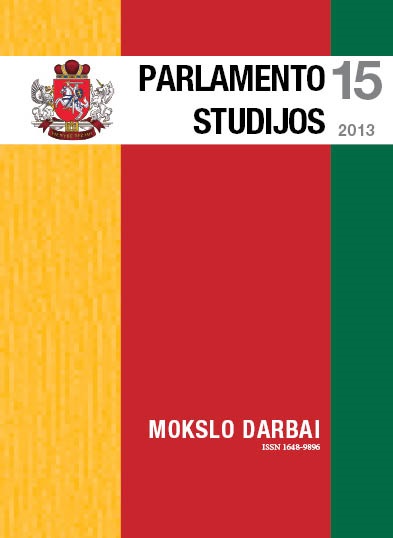Information Technologies and Parliamentary Monitoring Organizations: West European Experience
DOI:
https://doi.org/10.51740/ps.vi15.233Keywords:
information and communications technology, parlamentarism, e-democracy, public control of parliament, data - driven journalism, data mining, data bases, vizualization, civic initiatives, non-governmental organizationsAbstract
Continuing expansion of information technologies provides new opportunities to strengthen, upgrade in modern way communication between the parliamentary authorities, parliamentarians and electorate. Active dissemination of parliamentary activities related data on the Internet allows politicians, lawyers, social scientists and representatives of the widest sections of society use it for their own needs.
Information technologies now deal with collecting of parliamentary information, publishing on digital media, development of new tools for communication and feedback between institutions, politicians and voter. These new tasks concentrate on collecting and processing of the legislative process documentation, applying qualitative and quantitative content analysis, visualizing conclusions of research. Last stage of this sequence delivers final product to the consumer - politicians, experts, as well as any politically active citizens, mostly in Web 2.0 format.
Online accessible data can be used by parliamentary monitoring organizations, which through utilizing information technology, social sciences, journalism and information design interprets, summarize, evaluate collected data and make research results available for public attention. Parliamentary Monitoring Centers attracts a statistically significant quantity of socially active Internet users and influences public opinion.
The opportunity to observe the work of their representatives, to use the tools that allow get easily accessible, visual and constantly updating statistics about their activity and performance promotes voter’s interest in governing their own local community and the state administration, increase public participation and involvement in political activities. On the other hand, constant feedback, and the need to be constantly accountable to the electorate can promote more active parliamentary work, helping to optimize the parliamentary process.
Global collaboration of parliamentary monitoring centers results in exchange of positive experiences, common standards creation and continual development of this area. This process gradually acquires support from the political establishment and gains popularity between citizens and communities.
In Lithuania, this process has not yet reached same level of development as in Western Europe, resorting to possibility tests and usually are dedicated for particular projects, still waiting to transform for continuous, lasting forms.








 The metadata of the scholarly journals and publications of the Lithuanian National Martynas Mažvydas Library is distributed by
The metadata of the scholarly journals and publications of the Lithuanian National Martynas Mažvydas Library is distributed by 